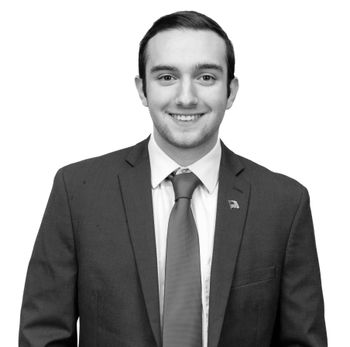EXCLUSIVE: Professors walk back statements on anti-Semitism, CRT influence on media reporting
The panelists had shared their expertise on three controversial court decisions issued in 2021, looking at the decisions through a racial viewpoint.
“We need to remember at all times that antisemitism IS white supremacy, IS white supremacy.”
On Jan. 20, one University of Pittsburgh professor claimed that “anti-Semitism is White supremacy” in reference to the Colleyville, Texas, synagogue taken hostage this month by a man of Pakistani origin.
“We need to remember at all times that anti-Semitism is White supremacy, is White supremacy,” law professor David Harris said at “Vigilantism and White Supremacy: The Power of the Courts to Defend and Disrupt,” a virtual event hosted by the university.
The event used the Critical Race Theory framework to examine three court cases decided in November 2021.
”Antisemitism is white supremacy because of its use in what is called replacement theory, or the Great Replacement,” Harris said. “For many white supremacists, Jews are the powerful hidden forces who are using the government, institutions, the media, etc., to bring Black and Brown people, immigrants, etc., to the country to replace the white population.”
[RELATED: Should CRT be a graduation requirement? These student leaders say yes.]
Campus Reform reached out to the professor to ask how he would characterize anti-Semitic attacks when the perpetrator is not White, such as the case in Colleyville, Texas.
”Perhaps it would have been better to say, ‘antisemitism is part and parcel of white supremacy,’” Harris stated.
Moderated by Tomar Pierson-Brown, the event opened with the University of Pittsburgh associate dean for equity and inclusivity excellence saying, “Our topic today encompasses specifically, the outcomes in three court decisions issued in November of 2021. The trial involving the 2017 Charlottesville rally organizers, the criminal trial of Kyle Rittenhouse, and the criminal trial of the three men charged in relation to the killing of Ahmaud Arbery.”
Campus Reform Pierson-Brown to comment on the event’s inclusivity when the panel did not include conservative viewpoints.
Responding via email, Pierson-Brown stated, “I agree that none of the speakers presented a conservative viewpoint during the panel discussion. My sense is that the presentation of ideas we disagree with, alone, does not constitute an environment that is not ‘inclusive.’”
”Inclusivity is compromised when members of a community do not feel empowered to disagree respectfully,” she added, also adding that ”[i]nclusion initiatives encompass efforts to create a culture of belonging.”
[RELATED: VIDEO: Students reject Critical Race Theory after learning what it’s really about]
Distinguished Professor of Sociology and the Bailey Dean of the Dietrich School of Arts and Sciences and the College of General Studies Kathleen M. Blee was the first panelist introduced.
Blee said that in the Charlottesville case, despite the verdict going against the defendants, “the vast amount of rhetoric and social media and political rhetoric around Antifa” was a significant factor in the outcome.
“That was the strategy that a number of the defendants took, that this was really a battle with this amorphous evil force of Antifa,” Blee said.
During the event, Blee explained, “We were able to work with the media, who were at the trial, to point out to them that covering that kind of detail of the trial would only enable and amplify the white supremacist messages.”
”If you wonder why you didn’t see much of the coverage of the trial, the media really took seriously their role in this, in not trying to amplify those messages,” she said.
However, Blee rephrased that characterization when speaking to Campus Reform.
[RELATED: Senator Cruz, Rep. Owens introduce bill to ban teaching of CRT in institutions that accept federal funding]
”To contextualize, I didn’t mean that we worked with the media during the trial. We did not. I meant that over the years, scholars have talked to media about the dangers of providing an open platform for messages that glorify or promote violence of any type.”
Professor of Law Christian Sundquist then gave his legal expertise on the Ahmaud Arbery trial.
Sundquist added, “When I think of labeling this, you know, ‘whites as victims,’ we’re also thinking about white innocence, this notion.”
He continued, “And that’s tied to notions of privilege. And we’re scared in this country to address or even talk about white privilege, especially for white people.”
”I have white privilege. Even though I’m multiracial and grew up with a black mother and sisters and family for most of my life in predominantly black neighborhoods in Chicago.”
Campus Reform reached out to Sundquist and the University of Pittsburgh for comment. This article will be updated accordingly.
Follow @PeterCordi on Twitter

